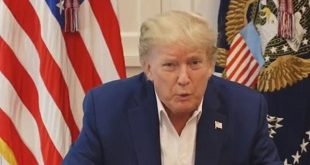Generally speaking, the tabled reforms respond to key aspects of the 2016 Supreme Court recommendations. However, they do not seem to significantly address the real challenges that afflict Uganda’s election management system.
For example, the Presidential Elections Amendment Bill, just like the Parliamentary Elections Amendment Bill, seeks to provide for restrictions on candidates’ sources of funding for elections. However, the intent of the law should be to regulate rather than restrict candidates’ sources of funding. It should foster campaign finance disclosure where applicable.
The Bills before Parliament also do not provide for the explicit prohibition of the involvement of public officers in partisan political campaigns and neither do they define the special procedures for voting of persons in restricted areas.
Given the country’s past experiences, where public officers have time and again, been involved in open partisan campaigning, the amendments ought to reflect severe punishments for those public officers who participate in political campaigns.
Similarly, given the lingering doubts around the transparency of voting in restricted areas, it would instill more confidence within the electorate if the procedures for voting in such areas are made explicit and clearly stipulated by the law.
The proposed amendments that remove the time limit (of 48 hours) within which every returning officer furnishes a presiding officer in the district with voting material prior to an election could easily create uncertainty around when actually polling materials can be distributed. It is possible that a returning officer could deliver polling materials to presiding officers days, weeks or even months prior to the election day or could convey the voting materials just a couple of minutes to polling. Either way, this could leave a lot of room for potential manipulation.
On one hand, it increases the risk of malpractices like tampering with polling material (in case the material is in the hands of Presiding Officers for a very long time), and on the other, it creates a possibility of voters being disenfranchised (in the event the material is delivered at the last minute prior to polling).
Therefore, to avoid the 2016 general elections’ experience where polling materials were delivered late to some polling stations in Wakiso and Kampala (and a few other places around the country), it remains important that the law retains a prescription of a specific time (48 hours) within which presiding officers receive polling material.
The amendment that creates an offence for any state owned media and personnel who do not provide balanced media for all candidates can be read as progressive. However, this proposal could be barking the wrong tree. Experience shows that when state or private media houses deny political candidates (or their agents) media space, it is on ‘orders’ from individuals in government. The law should address itself to the origin of such ‘orders’ rather than placing the burden on the management and staff of a media house. In fact, within this context, in order to guard against a risk of self-censorship on the part of the journalists employed by media houses, the law should provide for sanctions against the media house themselves and not necessarily the personnel.
While most of the gaps observed in the Bills could be resolved through the on-going consultations on the amendments, it remains clear that even though the Bills are panel beaten and passed, they would still not adequately guarantee the best election.
The amendments before Parliament do not tackle the real political and electoral reforms that would progressively change the electoral management framework of Uganda. Proposals to reinstate Presidential term and age limits, make the appointment process of the Electoral Commission more transparent, streamline the role of security agencies in elections, check the rising electoral violence, regulate the bad influence of money in campaigning, and strengthen the doctrine of separation of powers, do not seem to be adequately reflected anywhere in the amendments.
While indeed it may be accurate to say that some of these require amending the Constitution, it is also correct to say that many require programs to be operationalised and mindset change.
The reform of Uganda’s election system is not just about tinkering with Acts of Parliament in anyway. It is about welcoming progressive elements such as the code of conduct for political parties and organisations, about objectively critiquing the proposals tabled, properly enforcing the existing (good) laws, conducting a comprehensive legal reform that includes reviewing the Constitution, and most importantly, it is about subjecting Uganda to a surgical moral reform process (as a society) and collectively committing ourselves to live by certain moral standards.
Short of that, what we are going through now may be yet another exercise in fulfillment of a regular pre-election ritual with little or no significant consequences. In fact, the exercise risks being seen as a mere maneuver to impose cosmetic changes to the electoral system.
****
Crispin Kaheru is the Coordinator of the Citizens’ Coalition for Electoral Democracy in Uganda (CCEDU)
 The Independent Uganda: You get the Truth we Pay the Price
The Independent Uganda: You get the Truth we Pay the Price


